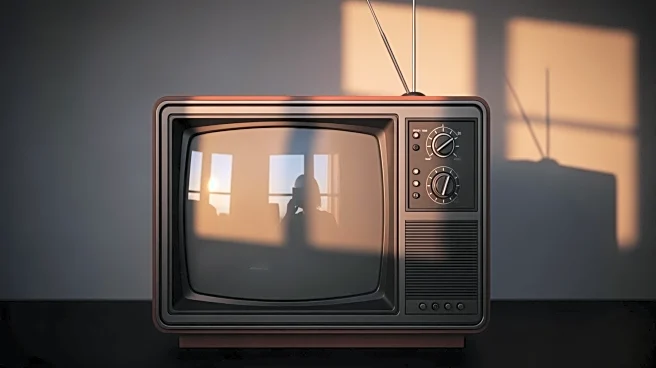What's Happening?
Brittany Snow, an actress known for her roles in various projects, recently made a statement in a SELF magazine interview that has reignited discussions about privacy in reality television. The comment, 'she didn’t sign up,' refers to the exposure of
her private life during her marriage to Tyler Stanaland, which was featured in a reality show. This remark has shifted the narrative from personal choices to the ethical responsibilities of reality TV producers. The statement has led to renewed scrutiny of how reality shows handle personal storylines and the consent involved in turning private lives into public content.
Why It's Important?
The significance of Brittany Snow's comment lies in its potential impact on the reality TV industry. It raises questions about the ethical responsibilities of producers and the extent to which personal lives are exploited for entertainment. This debate could lead to changes in how reality shows are produced, with increased pressure on producers to ensure informed consent and protect the privacy of individuals involved. The comment also highlights the broader cultural implications of reality TV, where personal crises are often turned into plotlines, affecting the reputations and personal lives of those involved.
What's Next?
Following Brittany Snow's comment, there may be calls for clearer contractual agreements and privacy clauses in reality TV productions. Industry stakeholders, including agents and producers, might negotiate tighter guardrails to protect individuals from unwanted exposure. This could lead to a shift in how reality shows are structured, with a focus on ethical storytelling and respecting the boundaries of those involved. Additionally, public discourse may continue to explore the balance between entertainment and privacy, influencing future reality TV formats and casting decisions.
Beyond the Headlines
The deeper implications of this development involve the cultural and ethical dimensions of reality TV. Brittany Snow's comment challenges the industry to reconsider the narrative costs of turning personal lives into entertainment. It also raises questions about the power dynamics between producers and participants, and whether current practices adequately respect individual autonomy. This could lead to a broader conversation about the role of media in shaping public perceptions and the responsibilities of content creators in maintaining ethical standards.

















